Homeowners across Middle Tennessee, from Belle Meade and Brentwood to Franklin and Nashville, are adding custom driveway gates to boost security, privacy, and curb appeal.
In fact, installing an automated driveway gate is one of the smartest upgrades a homeowner can make, adding real value to the property.
When it comes to sliding versus swing gates, the best choice depends on your lot size, topography, and aesthetic goals.
Below, we break down the differences and local factors to consider before installing driveway gates in Middle Tennessee.
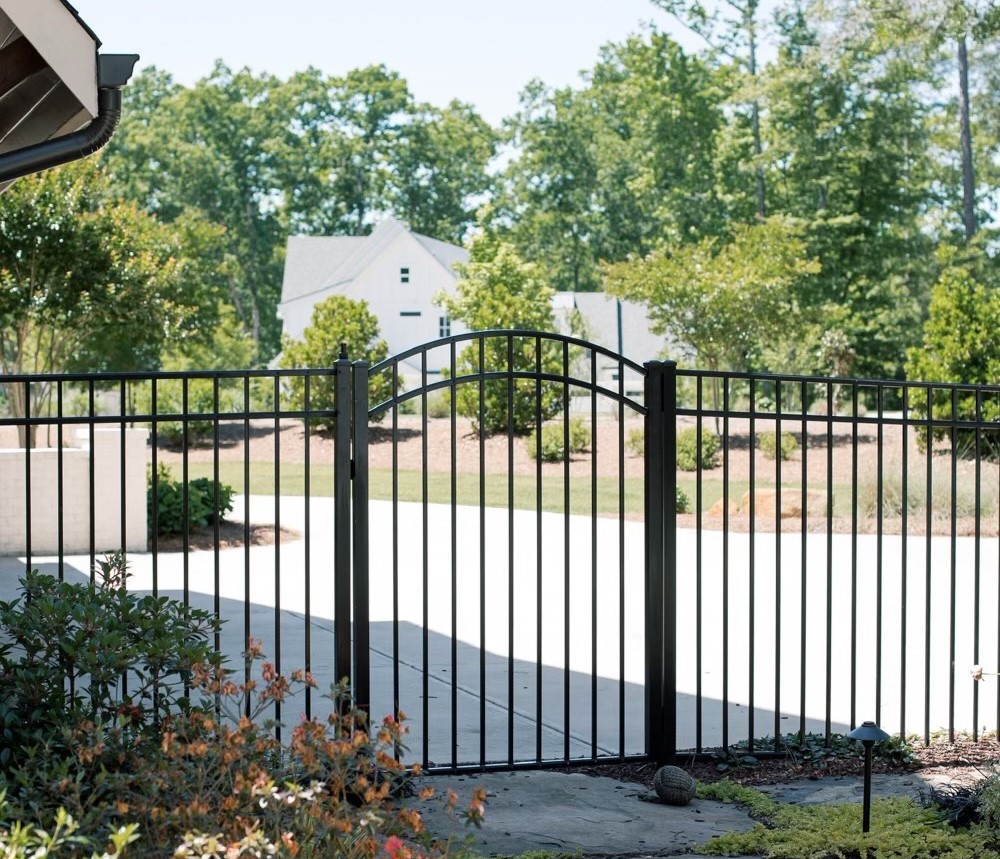
Driveway Gates in Middle Tennessee: Swing vs. Sliding
While both sliding and swing driveway gates can elevate your home’s security and style, they operate in fundamentally different ways.
And those differences matter when it comes to daily use, terrain, and long-term maintenance.
Let’s compare sliding and swing gates side by side based on key factors like lot size, slope, aesthetics, automation, and budget.
Operation
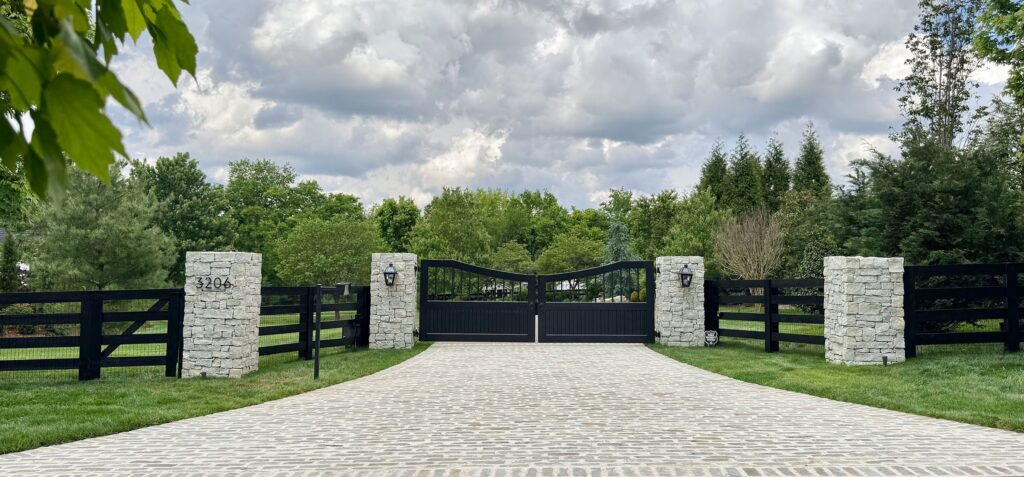
Swing gates open inward or outward on heavy-duty hinges, much like a door. A wide driveway might use dual panels to reduce strain on each hinge, while narrow lots can work with a single gate. Simple, elegant, but space-hungry.
Sliding gates, on the other hand, roll sideways along a track or cantilever system. Instead of swinging into the property, they slide parallel to the fence line, making them ideal when there’s no room to spare in front or behind the gate.
- Best for compact lots or where space is tight? Sliding gates.
Space Needed
Swing gates need clearance to fully arc open, usually inward, which can eat into your driveway space. If a vehicle is parked too close, the gate might not open at all.
Sliding gates need room to the side, not the front. As long as there’s enough fence line for the gate to retract, they’re great for short or steep driveways where every inch counts.
- Best for driveways with limited front space? Sliding gates.
Terrain Suitability
If your driveway is flat or gently sloped, swing gates work beautifully, simple mechanics, smooth operation.
But for sloped or uneven terrain, sliding gates win out. Their horizontal motion avoids issues like dragging or improper closing.
In fact, for upward slopes (common in Middle Tennessee), sliding gates are often the only viable automated option.
- Best for sloped driveways? Sliding gates.
Wind Considerations
In areas exposed to strong wind, like open lots in Franklin or rural Brentwood, swing gates can become problematic.
They act like sails, catching gusts that may strain hinges or even blow gates open unexpectedly.
Sliding gates are more wind-resistant since they stay aligned with the fence. No swinging = no sudden movement.
- Best for windy areas? Sliding gates.
Cost & Maintenance
Swing gates are generally more affordable to install. Fewer moving parts mean simpler setup and lower maintenance, just hinge checks and the occasional alignment.
Sliding gates are more complex, with extra hardware like tracks, rollers, and motors.
That means a higher upfront cost and more frequent maintenance. But with proper installation, modern systems (especially cantilever) are built to last.
- Best for lower cost and easy upkeep? Swing gates.
Aesthetic & Design
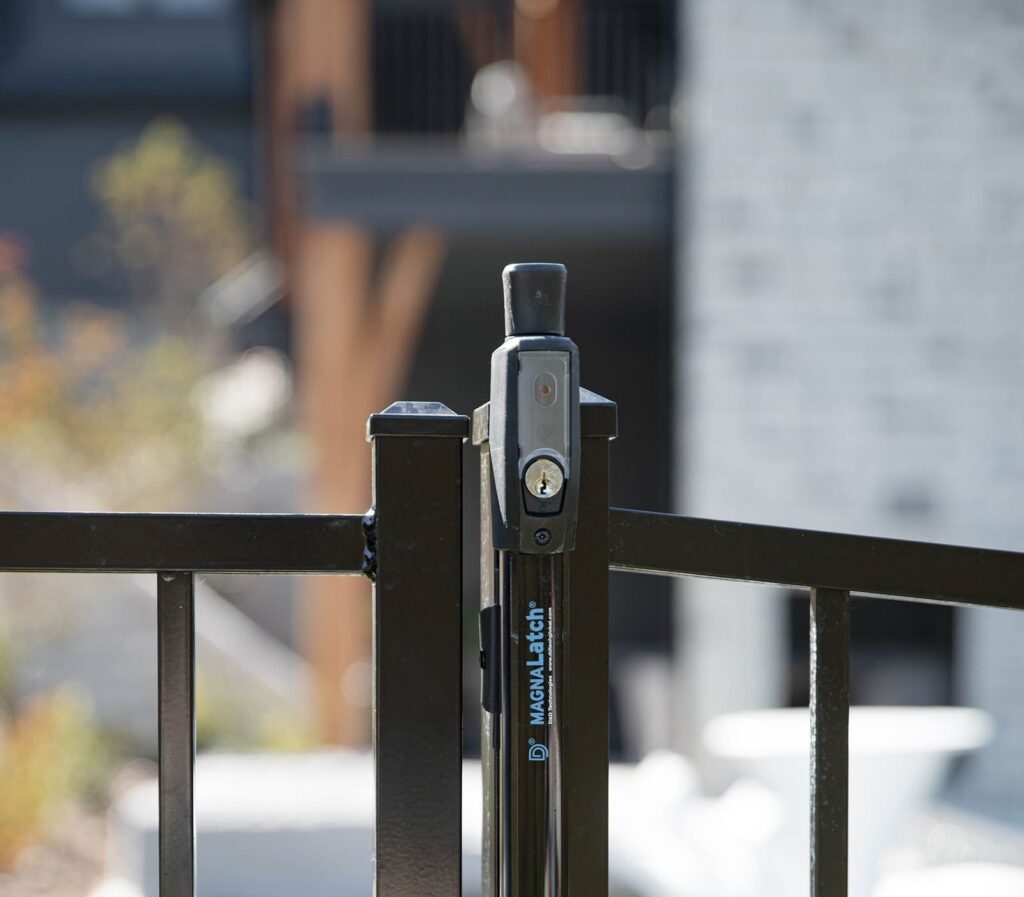
If you’re going for classic curb appeal, think stately, symmetrical, column-flanked entrances, swing gates shine. They create a grand opening moment and work beautifully with wood, iron, or ornamental designs.
Sliding gates have a cleaner, modern look. They blend seamlessly with contemporary fencing and are perfect for minimalist or horizontal-line-heavy architecture.
Now which option is “best” is kind of subjective and depends on your property but here’s what we think.
- Best for traditional homes? Swing gates.
- Best for modern or minimalist homes? Sliding gates.
How to Choose What’s Best For You?
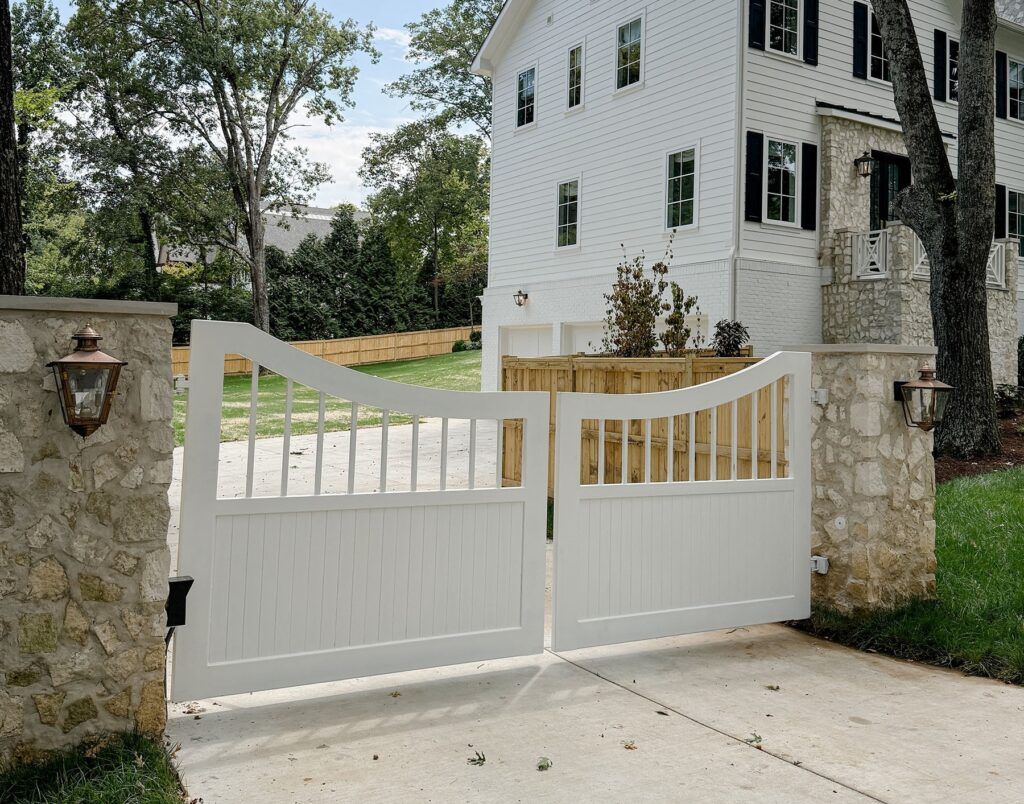
There’s no one-size-fits-all answer when it comes to driveway gates. Larger properties in areas like Belle Meade or Franklin often have the space to accommodate grand double swing gates with stone or brick columns.
But even then, a sliding gate might be preferred for long, curved driveways or easier winter operation.
On mid-size and compact lots, space is often the deciding factor: a single swing gate might work fine, or a sliding gate could be the only practical option.
Your property’s layout will ultimately guide the choice. A steep incline, overhead tree limbs, or limited clearance along the driveway’s edge can all affect whether a swing or sliding gate makes more sense.
For instance, sliding cantilever gates are a smart solution on uphill slopes, while flat, open yards might benefit from the visual impact of an ornamental swing gate.
This is where an experienced local contractor makes all the difference.
They’ll evaluate your site, account for slope, drainage, and layout, and help you choose the gate style that suits your goals, not just in appearance, but also in performance and longevity.
As one Tennessee fencing expert points out, swing gates need enough space to open fully and can struggle in high wind, while sliding gates involve more components and slightly higher costs, but handle tricky layouts better.
Work With a Local Expert
Heron Building Co specializes in custom driveway gates designed specifically for Middle Tennessee homes.
From grading and gate automation to column design and lighting, we treat the entrance as a unified system, not just a gate.
Our team has worked on projects from Green Hills to Thompson’s Station, bringing practical design ideas and seamless installation to each one.
If you’re exploring driveway gate options in Nashville, Franklin, or the surrounding areas, Heron can help you plan and execute a gate that enhances both security and curb appeal.
Schedule a consultation today to discuss your property and get expert input tailored to your home.
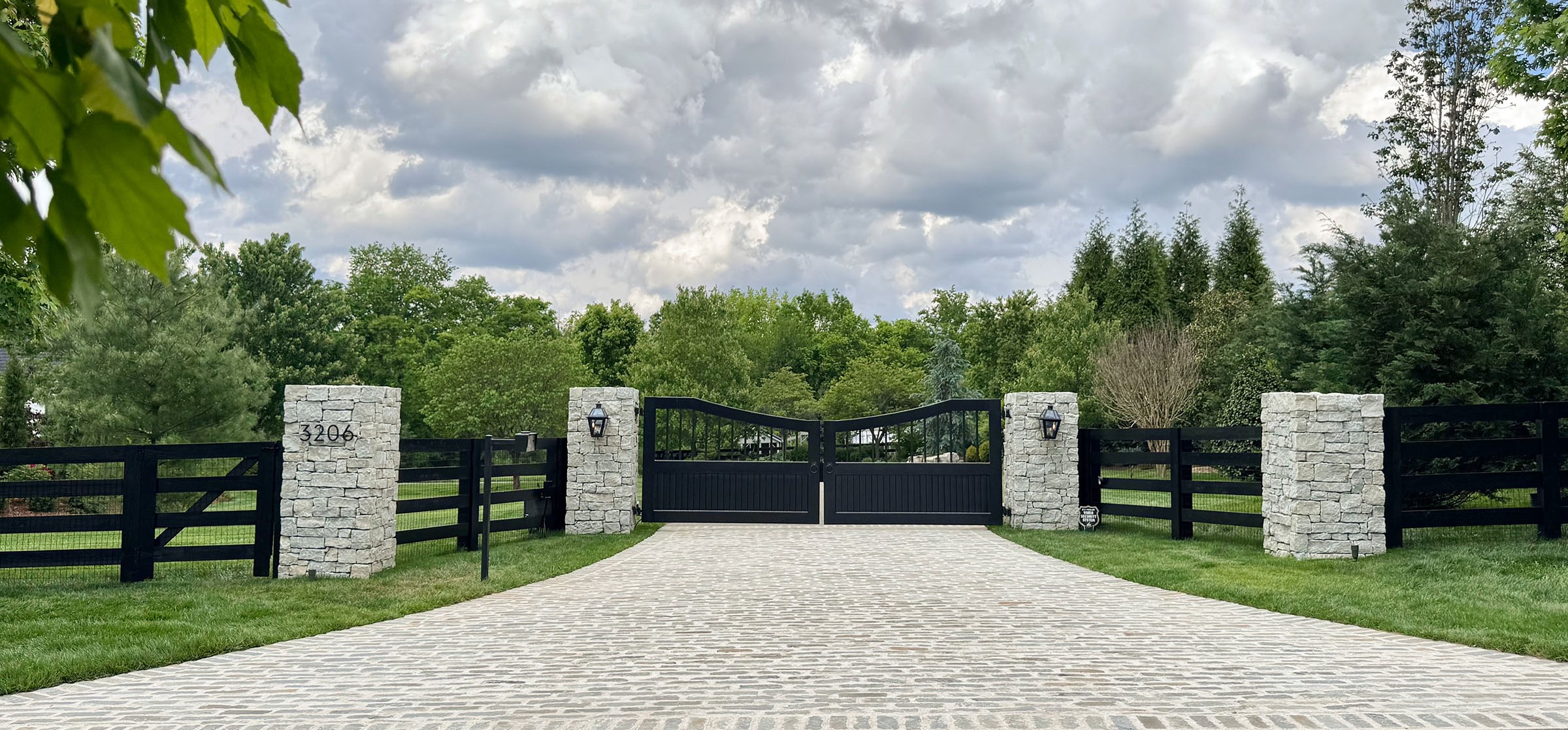
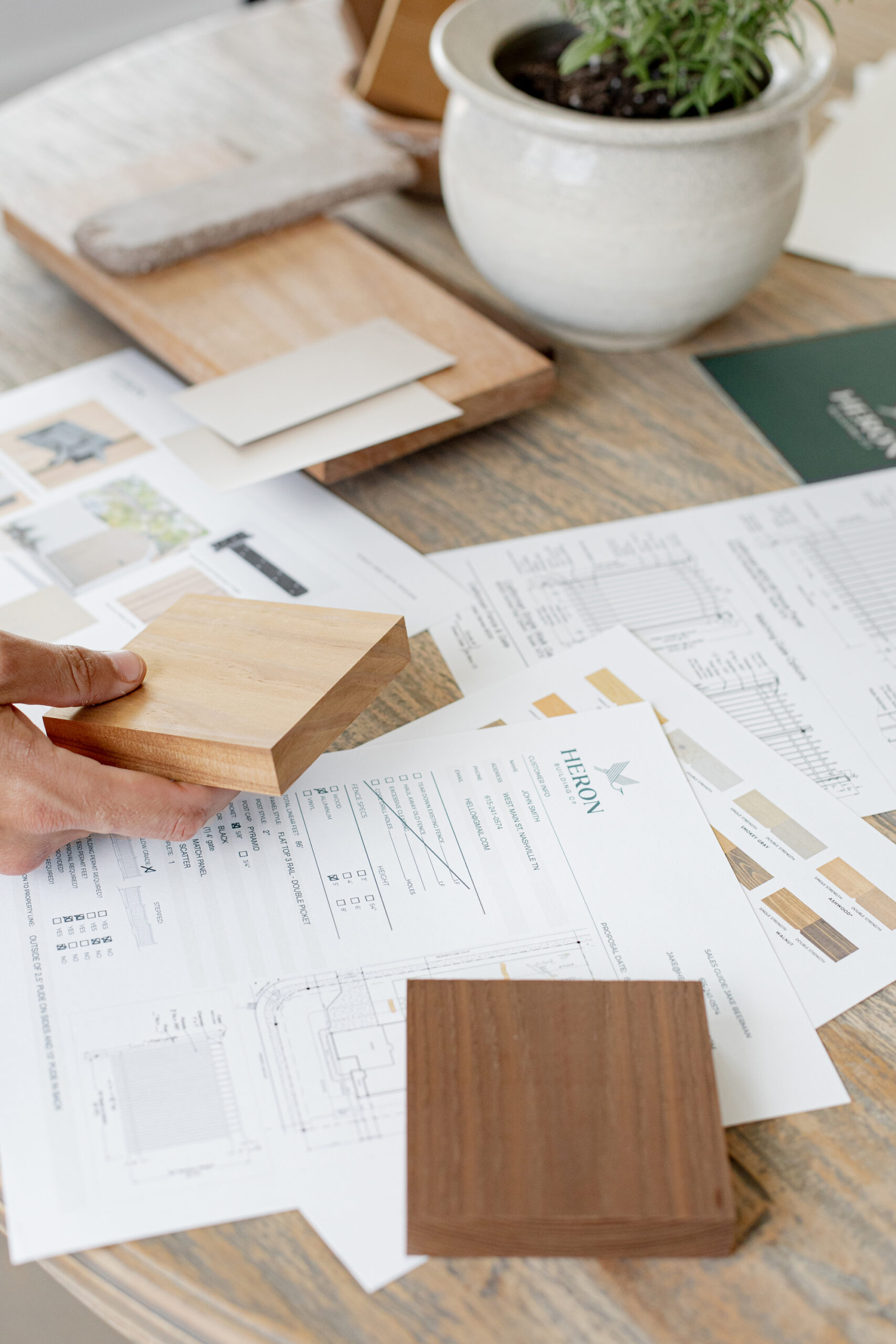
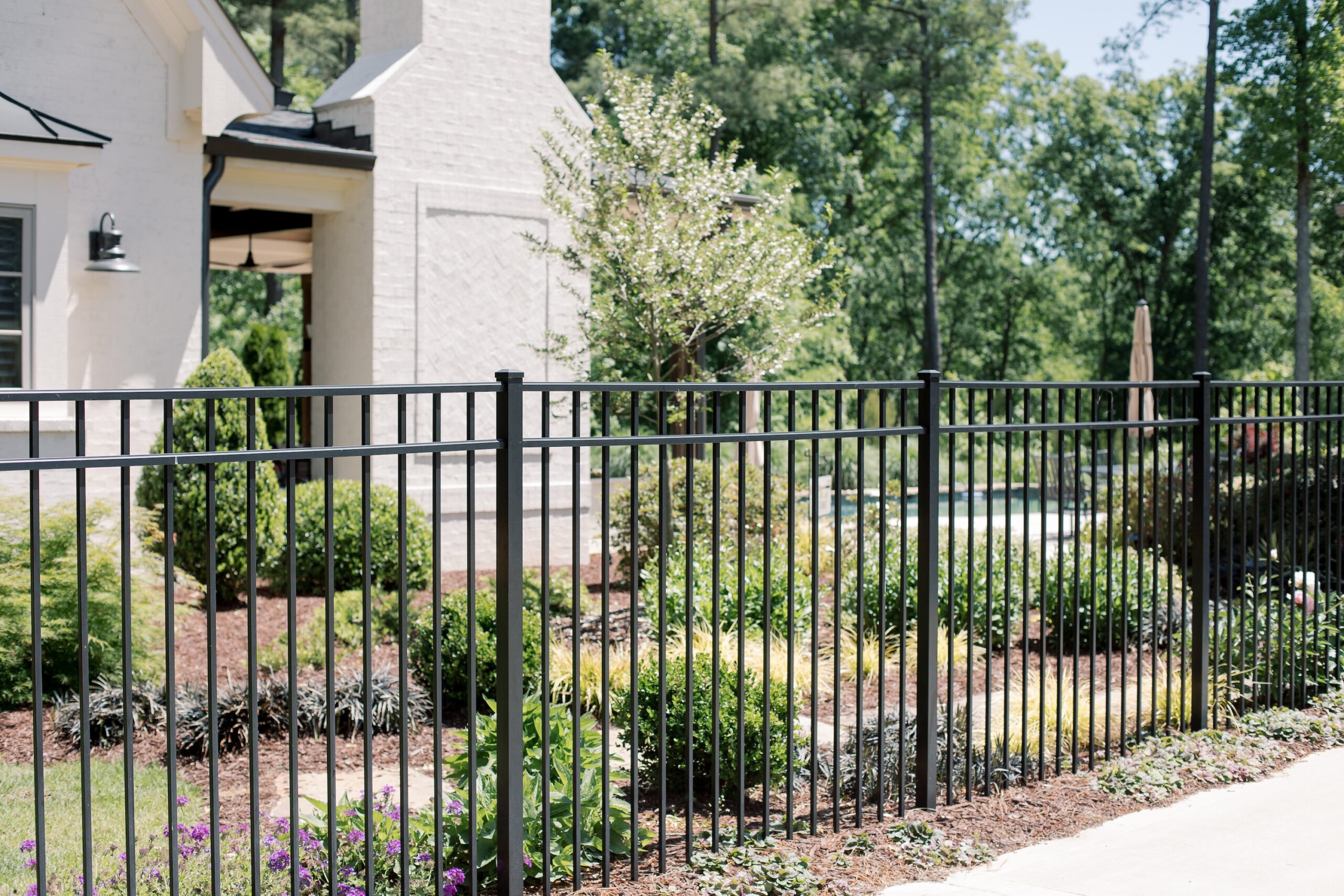
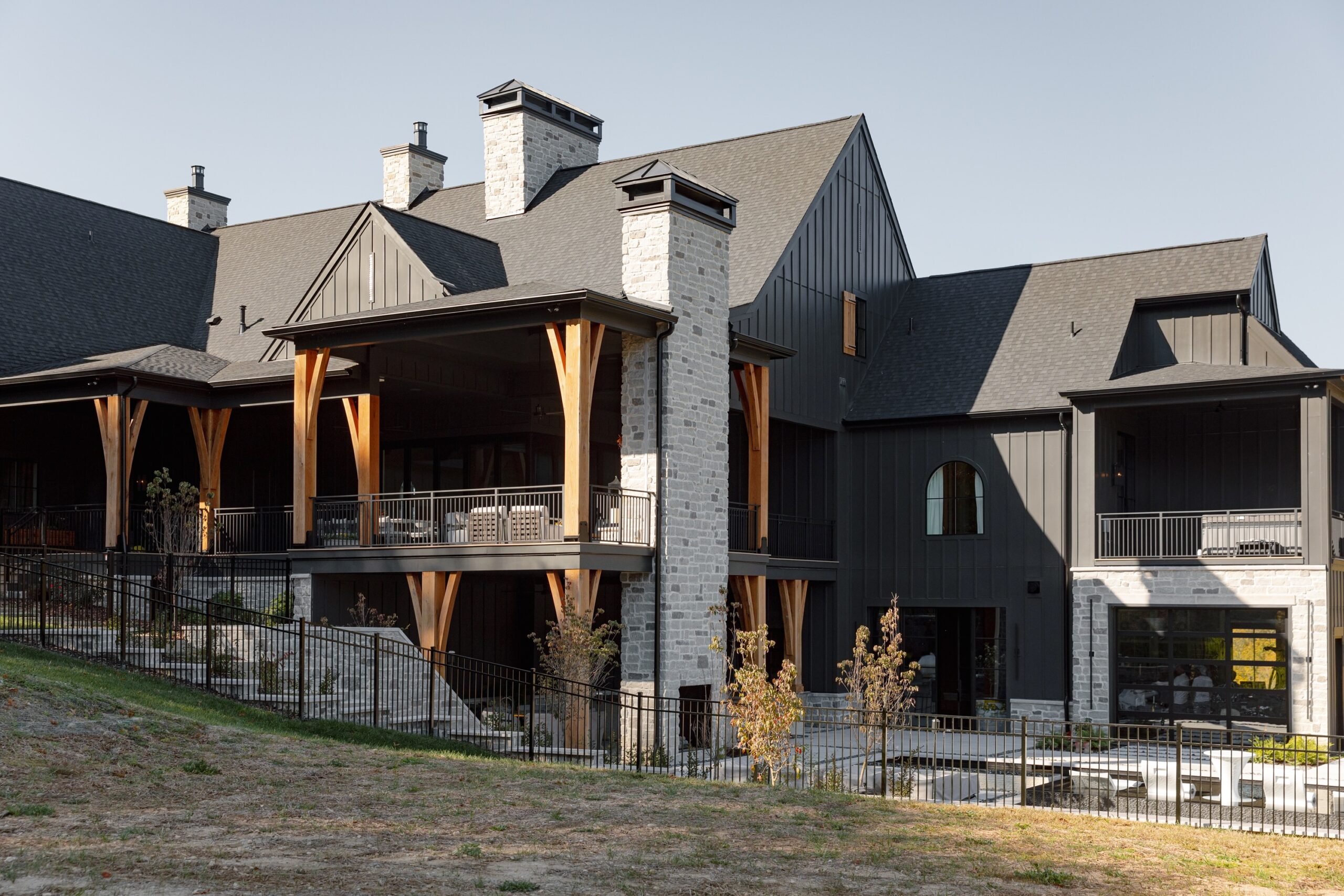
Comments +